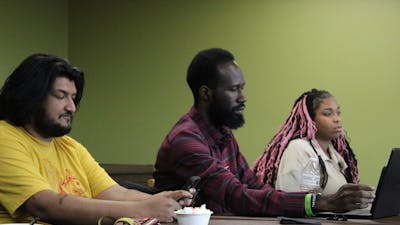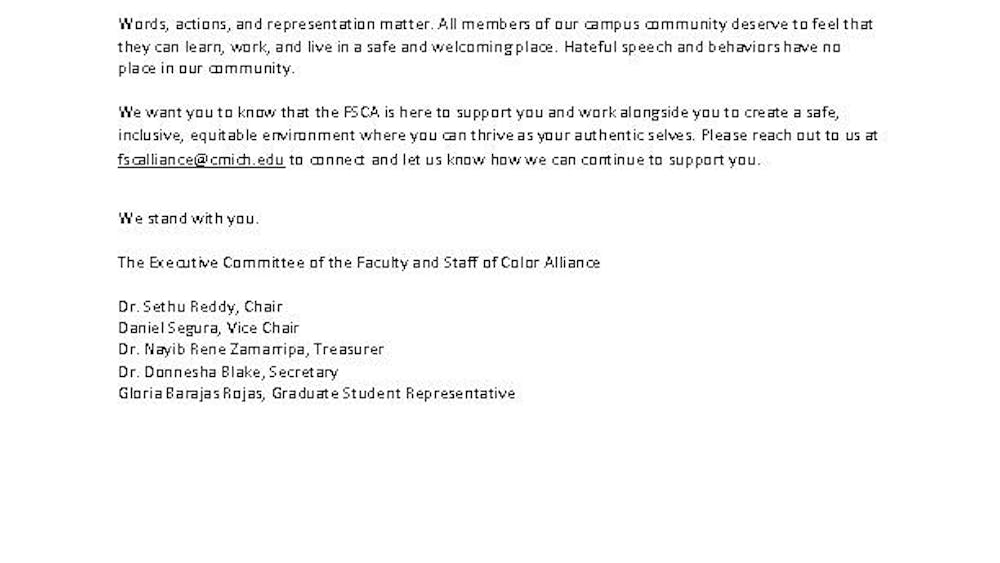Democrats make higher education a campaign priority
In the race for the Democratic presidential nomination, the contest is between a former first lady and a self-identified democratic socialist.
Hillary Clinton and Bernie Sanders are urging voters across the nation to choose them as the Democratic nominee. These two candidates vary in what they offer and what their vision is for the U.S.
In terms of delegates and superdelegates, Clinton has racked up 544, while Sanders has gained 85, the Washington Post reported. A total of 2,383 delegates grant the Democratic nomination.
Hillary Clinton
Following Bill Clinton’s two-term presidency, New York elected Hillary Clinton twice to the U.S. Senate, from 2001 to 2009. Later, as Secretary of State, Clinton oversaw foreign affairs in President Barack Obama’s first term.
Clinton is now presenting herself as the natural successor to President Obama.
“She has an incredibly deep resume; even compared to her husband,” said political science faculty member Jayne Strachan. “Bill Clinton, when he ran for president, was only governor of Arkansas.”
President of the College Democrats Tim Minotas said her experience is an asset, though Clinton does have some disadvantages that voters take into account.
Some voters look unfavorably on Clinton taking financial support from interest groups, such as banks, Minotas said. Clinton’s primary Super PAC, Priorities USA Action, has raised more than $50 million, The New York Times reported.
More broadly, Clinton faces challenges this election cycle, in part because of an anti-establishment sentiment in politics, Strachan said.
“It’s a year that people are pissed off,” Strachan said. “Some people are mad at the establishment, so listing your experience doesn’t always resonate with people who are upset about the way things have been in the past.”
Bernie Sanders
A Brooklyn native, Sanders first served public office as mayor of Burlington, Vermont as an independent from 1981 to 1989. Next, Sanders was elected by the state of Vermont to the House of Representatives, serving from 1991 to 2007. He served on the U.S. Senate starting in 2007 and was reelected in 2012.
Declaring his candidacy in May of last year, Sanders seeks to fix what he considers a broken financial system, expressing dissatisfaction about income inequality and money in politics. Sanders has opted not to associate himself with any super PAC.
Sanders appeals to voters because he speaks to the issues of average Americans and his voting record reflect his ideologies, Minotas said.
“You don’t see many politicians that have run their whole political career on the same stance,” he said. “Bernie has been consistent on his issues.”
Young voters have favored Sanders thus far CNN reported. In the first three primaries and caucuses, more than 80 percent of voters under the age of 30 voted for Sanders according to entry or exit polls. South Carolina exit polls show that Sanders won the same age demographic by eight points.
But Strachan notes skepticism has emerged about how feasible Sanders’ plans are.
“Sanders doesn’t have a real answer,” Strachan said. “His solution is that people will respond to his message, intensity and need to flip things around. That that will increase voter turnout from people who haven’t been voting.”
Distinctions
Sanders and Clinton have similar views on major political issues. Both have vowed to protect minority rights and to confront money in politics and climate change. Both approve of a path toward citizenship for undocumented immigrants.
Minotas said the Democratic candidates disagree on how far to the political left they envision their agendas.
“They differ on how to implement their policies,” Minotas said. “Sanders wants universal health care. Clinton doesn’t want to go that far, but to strengthen Obamacare.”
Sanders relates many issues back to his main theme of income inequality, while Clinton attempts to convey her competence by referencing her previous government roles, Strachan said.
Higher Education
Clinton’s New College Compact proposal aims to help students leave college debt-free. As detailed on her campaign website, the program would establish a system of incentivizing policies between families, government and learning institutions to keep costs down.
Sanders said he will make tuition at public colleges and universities free. He proposes to finance students’ tuition by taxing investment and financial institutions.
Both candidates wish to help refinance loans used for education and lower student loan interest rates.
The road ahead
Clinton won the Iowa, Nevada and South Carolina caucuses. Sanders was triumphant in the New Hampshire primary.
A slew of primaries and caucuses are set for March, including Michigan’s primary on March 8. Michigan will also host a Democratic debate on March 6 in Flint.
When it comes to facing Republicans in the national arena, Minotas feels confident in how both Democrats will fair.
“They’ll win,” Minotas said. “They’re going to win because they are speaking about the issues. The Republicans are running campaigns on hatred and lies, and I think the American people see that.”








